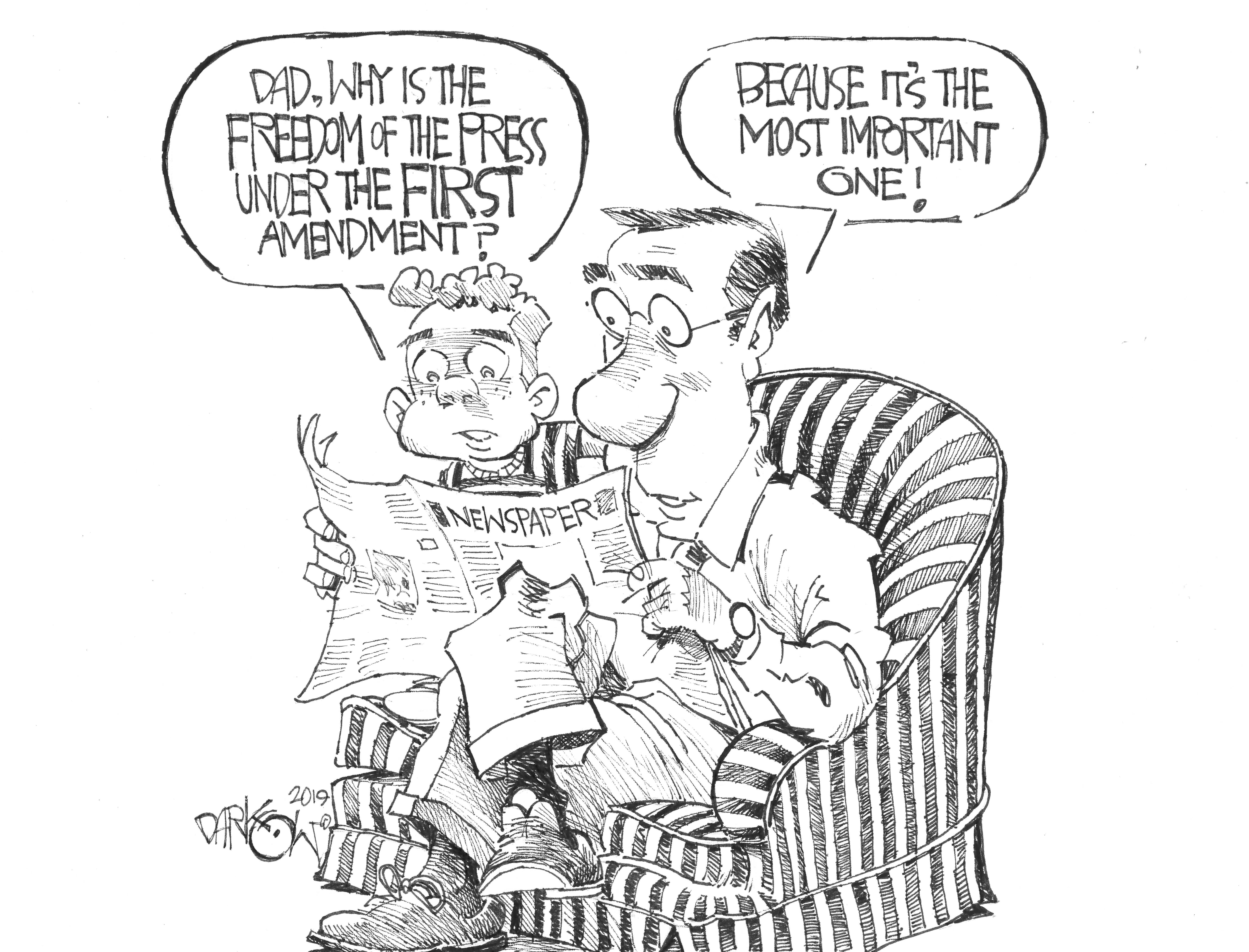House shines spotlight on president’s sloppy budgeting
Published 2:00 pm Wednesday, February 13, 2013
In a bipartisan vote last Wednesday, the House called out the president for his sloppy budgeting practices and his failure to provide a plan to lead the federal government to a balanced budget. I was among the 253 House members, including 26 Democrats, to vote for the “Require a PLAN Act,” which passed the House.
The idea is a simple one. If Washington lawmakers – from the president on down to Congress – had to manage the federal budget like many Americans who strive to live within their own means, then there would be greater attention to the bottom line. Admittedly, the federal budgeting process is far more complex than the family budget, but neither will be successful if they are not seriously addressed.
The president of the United States is required by law to submit to Congress a federal budget for the upcoming fiscal year between the first Monday in January and the first Monday in February. The first Monday in February passed a week ago and there is still no budget from the White House. This is not just a one-time omission, however. Not only has the president failed to submit his new budget on time, but he has done so four out of five times since first taking office. When his budgets have arrived on Capitol Hill, they have been universally panned as being consistently lopsided, adding trillions of dollars in debt and deficits for the foreseeable future.
Meanwhile, the Democrat-led Senate, also in defiance of the law, has failed to even pass a budget plan of its own in nearly four years. Given the White House and Senate’s disregard for the requirement to submit responsible budgets on time, it is no wonder that federal debt has risen by nearly $6 trillion since 2009.
Just as the House passed the ‘No Budget, No Pay Act’ last month to push the Senate to finally do its job and pass a budget, the House’s bipartisan passage of the “Require a PLAN Act” sends a signal to the president that the American people want their leaders in Washington – from the White House to Capitol Hill – to enact a responsible federal budget, on time.
It bears repeating that the House has proven such a goal can be met. Since gaining a majority in January 2011, House Republicans, with the leadership of Budget Committee Chairman Paul Ryan, have passed two annual budgets that would have reduced federal spending and led the country toward a balanced budget over time. While neither of our budgets was adopted by the Senate, they did prove that Congress can act responsibly if lawmakers are motivated to do so. Sadly, the Senate has lacked the political will to follow suit.
While the House cannot dictate the actions of the Senate or the White House, we will continue to shine a light on their reckless and irresponsible budget practices.
Putting the Reins on Costly Regulations
Each time I visit Southwest Alabama businesses I am reminded of the growing weight of costly federal regulations under which they must operate. It is a familiar refrain of factory and store owners from Monroeville to Magnolia Springs, and just as much a factor on their bottom line as rising energy costs and higher taxes.
Businesses don’t operate in a vacuum. If Uncle Sam makes it harder for them to stay profitable, the impact is felt by everyone in higher prices for goods and services. It has been estimated that the full effect of federal regulations – including direct cost to business and the impact on the economy through higher costs to the consumer – is close to $1.8 trillion.
Of course, the cost of administering the ever increasing army of bureaucrats who oversee and promulgate these new regulations makes the price tag for the taxpayer even higher.
The same federal bureaucrats who interpret and write regulations that have direct and indirect impacts on our lives don’t answer to the American people. Congress passes law, but it is the Executive Branch that interprets and implements them through regulation. What is clear to many Americans is that unelected federal bureaucrats often have too much latitude in their rule making, which can have significant negative consequences on business and the economy.
I believe Congress should have the final say in the implementation of federal regulations, particularly those which pose the greatest burden on business and jobs. I have cosponsored legislation to require an up-or-down vote from Congress before major regulations take effect. The Regulations from the Executive in Need of Scrutiny (REINS) Act, already has more than 120 House cosponsors.
The REINS Act is vital to ensure that those who rubberstamp major regulatory decisions, which ultimately impact business and the economy, are accountable to the American people.
My staff and I work for you. If I can ever be of service, please do not hesitate to call my office toll free at 1-800-288-8721 or visit my web site at http://bonner.house.gov.


